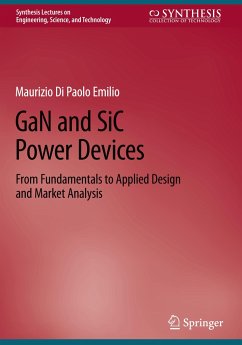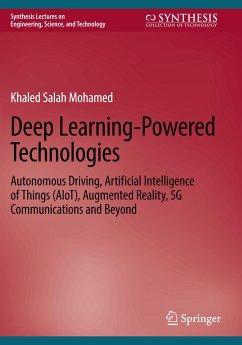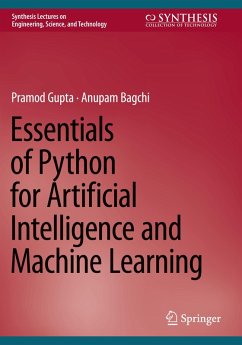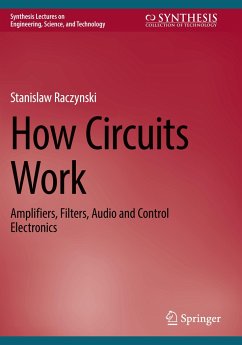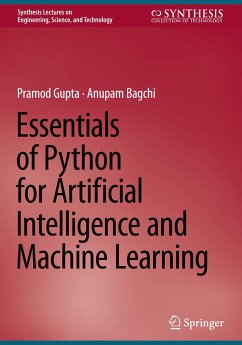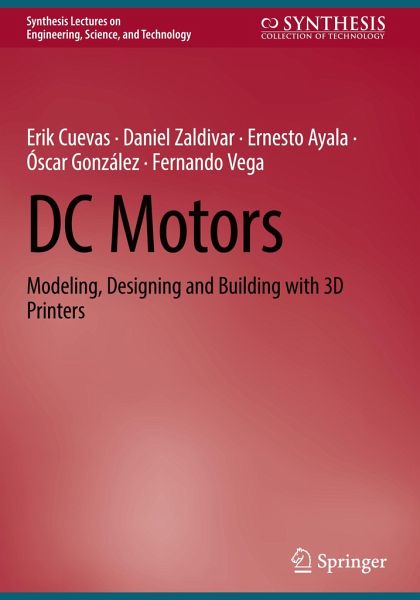
DC Motors
Modeling, Designing and Building with 3D Printers

PAYBACK Punkte
19 °P sammeln!
This textbook provides readers with the knowledge and practical skills necessary to understand, design, and construct their own functional DC motors using 3D printing technology. The authors provide a clear and accessible introduction to the fundamental concepts of DC motors, explaining how they work, their different types, and their applications in a way that is easy for readers with limited technical background to understand. The book bridges the gap between theoretical knowledge and practical application, so that readers see how theoretical concepts translate into real devices. The authors ...
This textbook provides readers with the knowledge and practical skills necessary to understand, design, and construct their own functional DC motors using 3D printing technology. The authors provide a clear and accessible introduction to the fundamental concepts of DC motors, explaining how they work, their different types, and their applications in a way that is easy for readers with limited technical background to understand. The book bridges the gap between theoretical knowledge and practical application, so that readers see how theoretical concepts translate into real devices. The authors guide readers through the process of building their own DC motors, using 3D printing technology. Readers can gain hands-on experience creating functional devices, using the step-by-step instructions, illustrations, and diagrams. The authors' focus on 3D printing enables readers to explore the field of customization, so they can adapt motor designs to fit their specific needs, whether fora project, a prototype, or an application.



